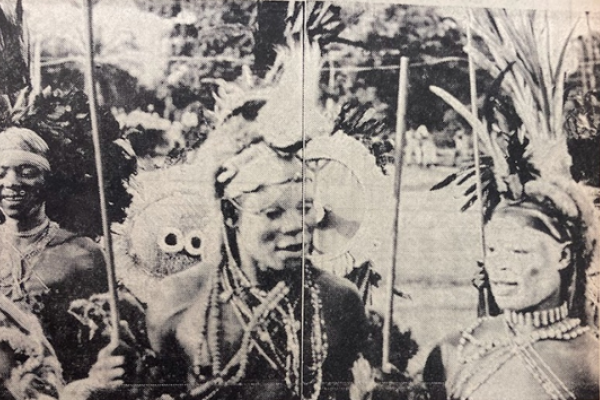
Cultural Diplomacy, Neocolonial Collaboration, and International Festivals in the Making of a Congolese National Ballet, 1964-1967
Abstract:
In 1966, the Ministry of Cultural Affairs of the Democratic Republic of Congo sent a contingent of “traditional” dancers to the First World Festival of Black Arts (FESMAN) in Dakar, Senegal in the hopes of demonstrating the country’s cultural wealth to international audiences after a period of political turmoil. To do so, the newly-installed authoritarian government had called upon Belgian producers– who had previously served as directors of pro-colonial theatrical productions– to fashion a new, folkloric dance troupe representative of an independent Congo. Using archival material, published interviews, and press clippings from the 1966 Dakar trip of the short-lived National Congolese Folkloric Ballet, this presentation asks how the terms of artistic collaboration between Belgium and Congo changed in the transitory moment of the mid-1960s. Staged performance during this transitory period, this presentation suggests, served as an important arena of both internal and international debates over what would constitute Congolese national culture, and what role Belgian collaborators might play in Congo’s presence at Pan-African festivals such as FESMAN.
Emily Hardick is a Ph.D. candidate in African history in the Department of History. Her dissertation examines the international tours of Congolese (DRC) performance troupes, their relationships to Belgian arts organizations, and their role in the performance of colonial subjecthood and postcolonial national identity.
Picture: Congolese National Folkloric Ballet performers in rehearsal in Elisabethville, March 1966.
Le Courrier d’Afrique. April 6, 1966.
